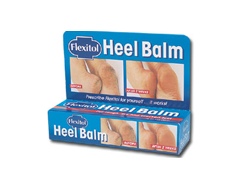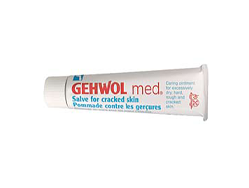Eczema
Introduction to Eczema
Eczema affects one in five adults in the United Kingdom and up to one fifth of children. The term eczema is a blanket term that can be used for all forms of eczema as their as many types of eczema. In a mild form the skin appears dry, and itchy. In severe forms, the skin may bleed. The cause of eczema depends on the clinical diagnosis of the type of eczema. It is imperative that the type of eczema is diagnosed before an effective treatment plan can be implemented.
Forms of Eczema
Listed below are the five main types of eczema that affect the feet and legs.
Atopic Eczema
This is the most common form of eczema. The skin often appears extremely dry, red and inflamed. The patient may also complain of severe itchiness. Scratching the skin may cause the skin to split, leaving it susceptible to infection. If the eczema is infected, the skin may crack and weep. Atopic eczema is linked with hereditary factors, asthma and hayfever. Patients may also have a sensitive reaction to certain types of allergens in the environment, which may lead to the occurrence of atopic eczema. Treatments include different types of emollients and steroids to reduce the inflammation.
Discoid Eczema
This form of eczema commonly appears in adults and can affect the legs and the feet. Discoid eczema appears as small round shaped lesions that can be very itchy and may weep fluid. Treatments include different types of emollients and steroids to reduce the inflammation.
Irritant Contact Dermatitis
This form of eczema is caused by frequent contact with everyday substances such as soaps and shower gels. A patient may experience symptoms similar to that of atopic eczema. This condition can be prevented through avoiding the irritant.
Allergic Contact Dermatitis
This condition is very similar to irritant contact dermatitis. Red, itchy and inflamed lesions may occur due to a material such as cotton, leather or wool. Certain types of washing up powders and fabric softeners may also lead to an attack of allergic contact dermatitis.
Varicose Eczema
Patients who suffer from varicose veins are susceptible to varicose eczema. This condition produces speckled, itchy and inflamed lesions. These commonly affect the ankle region. If severe varicose eczema occurs, it may lead to the formation of an ulcer. Treatments include different types of emollients and steroids to reduce the inflammation




 Dr Foot Recommends
Dr Foot Recommends



 Flexitol Heel Balm treatment combines 25% urea formula with highly concentrated emollient base. With regular use, your feet will become soft and silky smooth to the touch.
Flexitol Heel Balm treatment combines 25% urea formula with highly concentrated emollient base. With regular use, your feet will become soft and silky smooth to the touch.














